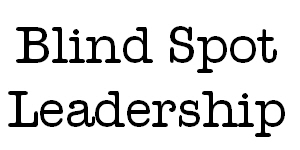 Compassion is, according to Miriam Webster “a feeling of wanting to help someone who is sick, hungry, in trouble, etc.”. Cowardice is “fear that makes you unable to do what is right or expected : lack of courage.” The words are pretty different, but I often find that in action, I confuse the two. I think that I am acting in compassion – but in reality am displaying cowardice.
Compassion is, according to Miriam Webster “a feeling of wanting to help someone who is sick, hungry, in trouble, etc.”. Cowardice is “fear that makes you unable to do what is right or expected : lack of courage.” The words are pretty different, but I often find that in action, I confuse the two. I think that I am acting in compassion – but in reality am displaying cowardice.
Here is an example: We want to install kitchen in at our gallery. All we have available now is a small tea kitchen, where we can make coffee, tea, etc. Downstairs we have more space, but we don’t have strong enough electricity for the stove and the oven. When we moved in we asked the landlord about it, and he said that we could install other electricity it if we wanted, but there were some stoves and ovens on the market that worked fine on the weaker electricity. I researched that a little, but was not happy with the options.
The case of the disappearing electrician…
I contacted an electrician, a friend of a friend. After multiple attempts to contact him, he finally came by and looked at the work that needed to be done. He promised me a quote, which I never got. Weeks later I saw him again, and told him I would like the work to be done, and gave him a target date. He said it would be no problem. Then I never heard from him again. No quote, not answering phone calls, not returning texts. So I let the work sit undone for months as I waited.
Why? Because I was being “compassionate.” I know his story. I think he could use the work. He is networked with people I know, and I want to provide him business to strengthen the networks. I let the lack of contact go because I had convinced myself it was the “nice” thing to do.
But not really. I let it go because of cowardice. I did not want to deal with confronting him. I did not want to have to deal with finding another electrician. I did not want to deal with learning the words in German for dealing with an electrician that was outside of my normal contact circle.
Saying I was being compassionate made me feel better – but it did not get the work done. It only hurt me, our plans, and the desire we have to move forward in certain areas.
Why is this important?
Small amounts of wind-drag can slow down a race car. Tiny amounts of friction rob an engine of efficiency. Little things make a difference in overall effectiveness – especially when you are trying to build momentum.
So why do I struggle with confronting people? Because somehow I believe that it is wrong of me, or mean of me, to be the person who says:
- “I’m sorry – this is just not working out.”
- “This work is below expectations”
- “You’ve missed a deadline, and that is creating more work for other people.”
What I am learning, however, is that my cowardice I am really saying:
- “Go ahead and keep doing what you are doing.”
- “Sub-par work is okay.”
- “Deadlines were really just suggestions, and we would rather have other people make up for the work you are not doing.”
Cowardice is harmful for everyone. Harmful for me as a leader, for the other people in the organization, and for the person I am trying to be “compassionate” to.
Compassion without Cowardice
When I address a situation head-on, I can do so showing compassion for everyone involved. In the situation with the electrician I had to ultimately address my own fears, and move on. I had to find an electrician that could actually get the work done. I did this much too late, though. The amount of waiting has set other plans on hold.
Compassion would have been to say, “I want you to get the job, and I want you to do the work. But if it is not done by this date, I will find someone else.” That is compassion without cowardice.
Compassion says, “From my perspective this is not working out. Is something going on in your life that I need to know about, or are we better off parting ways?”
Compassion says, “From what I have seen in the past, you are capable of amazing work. Is there a reason the quality is not up to your normal standards?” and then addresses the issues named, by providing training or whatever else is needed.
Compassion says, “We seem to have a problem hitting this deadline on a regular basis. What do we need to change? ”
Courage faces the issues that exist, compassion recognizes that there is more than just a working relationship, more than a quality of work, and more than a deadline at stake. Leadership today needs both.

Recent Comments